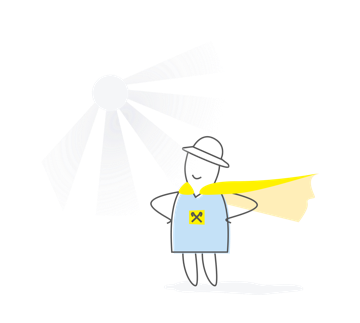Peculiarities of business account replenishment
Money “didn’t reach” the account, and is urgently needed there? There are several options for how to deposit money to the account and not pay income tax.
Most entrepreneurs have a settlement account or think about it, trying not to lose customers who want to pay with payment cards via terminal. Therefore, the peculiarities of replenishing this account shall be reminded.
Entrepreneurs, unlike legal entities, are not required to hand over all cash proceeds to the bank. The main thing is that the daily cash proceeds should be recorded in a timely manner in the Income Ledger. Entrepreneurs are not required to calculate and adhere to the cash limit at the box office either. This means that they can take cash proceeds to the bank when they need to.
However, there are cases when there is a lack of funds on business account, and you need to urgently transfer the payment to the counterparty, pay salaries to employees or pay taxes. The entrepreneur can replenish his/her card account, but it’s important to do this so as not to have to include this amount in income.
The most common way to replenish a bank account is to deposit cash proceeds, which is already reflected in the Income Ledger. It is not necessary to record it on the bank statement in the Income Ledger for the second time as it is already reflected in it. To prevent desire of the tax office to include this amount in the income again, we recommend you to draw up an accounting certificate for internal accounting, which indicates the date of receipt of cash proceeds and the amount that is deposited to the bank on a certain date. In the purpose of payment of the bank cash documents indicate “Trade revenue for the period ......”. In this case, the individual entrepreneur will understand why this or that amount is deposited, and will not face the error when less cash proceeds are actually received than deposited to the bank. And the tax office during the inspection will understand why this amount was not recorded in the Income Ledger for the second time. In this case, the proceeds must be deposited either by the entrepreneur personally or by the authorized representative of the entrepreneur, to whom the power of attorney has been issued, which allows to carry out banking operations on behalf of the individual entrepreneur. If the money is deposited to the bank by any person who does not have such power of attorney, the tax office during the inspection will insist that it’s an income that was paid by this person through the bank and it had to be reflected in the Income Ledger as the income received in non-cash form.
But sometimes there are cases when the proceeds placed to the account are not enough to make the necessary non-cash payments.
It’s better not to place funds with the purpose of payment “deposit of own savings” or “replenishment of working capital”, because the tax office during the inspection considers these amounts as income that was not reflected in the account. Such inclusion of the deposited amounts with such purpose of payment in the income can lead to excess of the allowed amount of income for the selected group. This means that the entrepreneur had to abandon the simplified taxation system, which he/she didn’t do in time.
It’s better not to transfer funds from the personal account of a private individual to the entrepreneurial one, as this amount will be included in the income by the tax office. And they explain their point of view by the fact that the definition of income for an individual entrepreneur – a single tax payer is determined by the Tax Code of Ukraine. Income is an income received during the reporting period in monetary form (cash and/or non-cash), tangible or intangible form (Article 292 of the Tax Code of Ukraine). The income of the single tax payer also includes the value of goods (works, services) received free of charge during the reporting period.
Therefore, entrepreneurs use another way – to deposit money legally as repayable financial assistance. Money must be repaid within 12 months, and in order to avoid problems when returning, it’s necessary to enter into an agreement directly with a private individual. We remember that an individual entrepreneur cannot enter into such agreement with himself/herself. It can be any other private person.
Natalia Shcherbak, tax consultant of the newspaper “Individual Entrepreneur”, specially for “My Business” Magazine.















